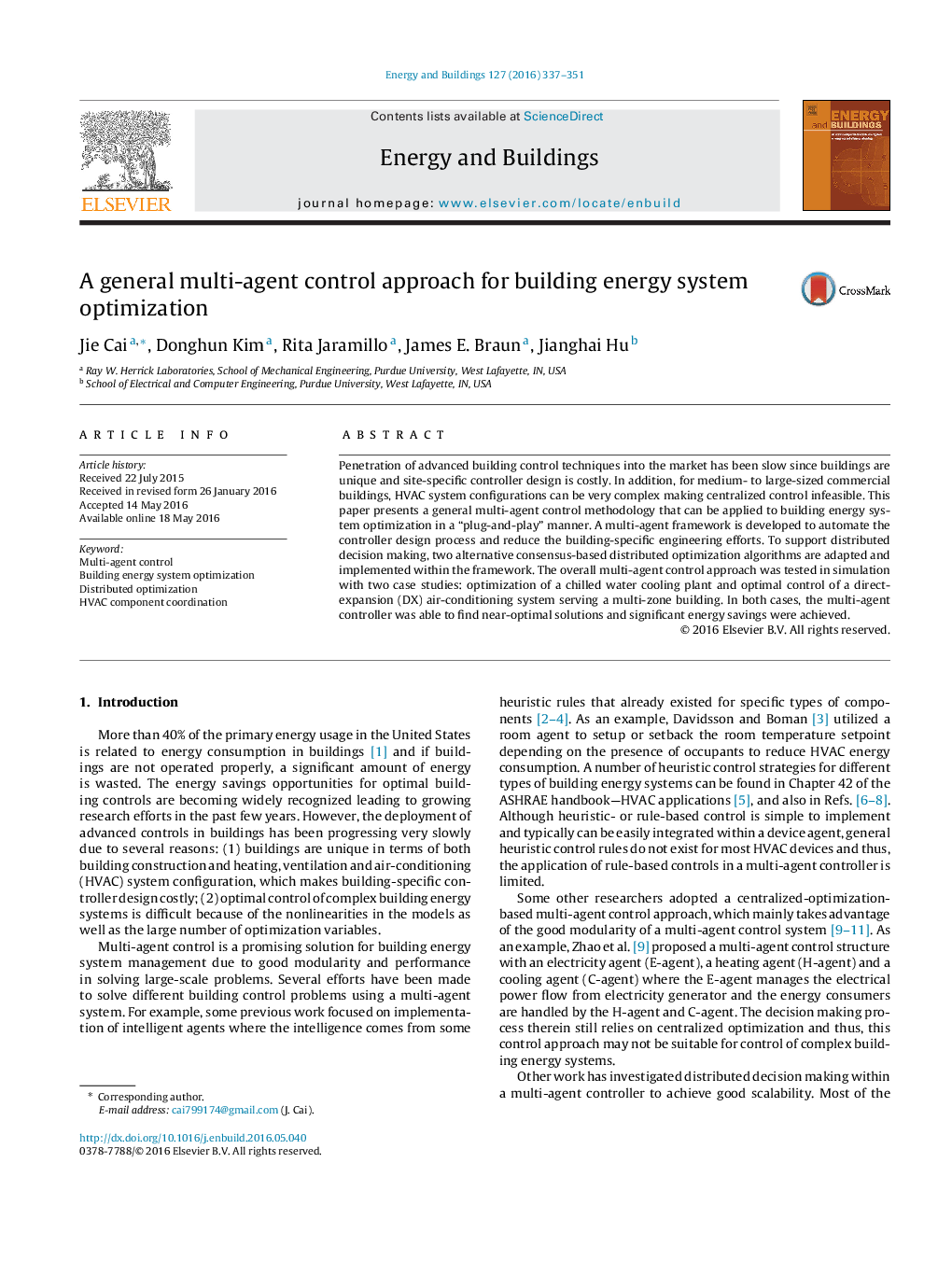| Article ID | Journal | Published Year | Pages | File Type |
|---|---|---|---|---|
| 261986 | Energy and Buildings | 2016 | 15 Pages |
•A multi-agent control approach is proposed for optimal management of building energy systems.•A multi-agent control framework is developed to reduce the engineering effort in a controller synthesis.•Two distributed optimization algorithms are incorporated in the framework as a multi-agent decision making mechanism.•Testing results in two building control case studies show near-optimal performance of the proposed approach.
Penetration of advanced building control techniques into the market has been slow since buildings are unique and site-specific controller design is costly. In addition, for medium- to large-sized commercial buildings, HVAC system configurations can be very complex making centralized control infeasible. This paper presents a general multi-agent control methodology that can be applied to building energy system optimization in a “plug-and-play” manner. A multi-agent framework is developed to automate the controller design process and reduce the building-specific engineering efforts. To support distributed decision making, two alternative consensus-based distributed optimization algorithms are adapted and implemented within the framework. The overall multi-agent control approach was tested in simulation with two case studies: optimization of a chilled water cooling plant and optimal control of a direct-expansion (DX) air-conditioning system serving a multi-zone building. In both cases, the multi-agent controller was able to find near-optimal solutions and significant energy savings were achieved.
